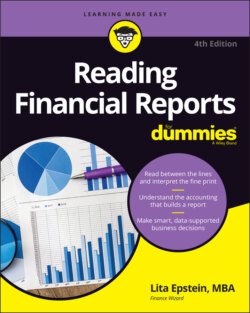Читать книгу Reading Financial Reports For Dummies - Lita Epstein - Страница 55
Looking at the negative side
ОглавлениеRegardless of the many advantages of being a public company, a great many disadvantages also exist:
Costs: Paying the costs of providing audited financial statements that meet the requirements of the SEC or state agencies can be very expensive — sometimes as high as $2 million annually. (I discuss the audit process in greater detail in Chapter 18.) Investor relations can also add significant costs in employee time, printing, and mailing expenses.
Control: As stock sells on the open market, more shareholders enter the picture, giving each one the right to vote on key company decisions. The original owners and closed circle of investors no longer have absolute control of the company.
Disclosure: A private company can hide difficulties it may be having, but a public company must report its problems, exposing any weaknesses to competitors, who can access detailed information about the company's operations by getting copies of the required financial reports. In addition, the net worth of a public company's owners is widely known because they must disclose their stock holdings as part of these reports.
Cash control: In a private company, owners can decide their own salary and benefits, as well as the salary and benefits of any family member or friend involved in running the business. In a public company, the board of directors must approve and report any major cash withdrawals, whether for salary or loans, to shareholders.
Lack of liquidity: When a company goes public, a constant flow of buyers for the stock isn't guaranteed. For a stock to be liquid, a shareholder must be able to convert that stock to cash. Small companies that don't have wide distribution of their stock can be hard to sell on the open market. The market price may even be lower than the actual value of the firm's assets because of a lack of competition for shares of the stock. When not enough competition exists, shareholders have a hard time selling the stock and converting it to cash, making the investment nonliquid.
A failed IPO or a failure to live up to shareholders’ expectations can change what may have been a good business for the founders into a bankrupt entity. Although founders may be willing to ride out the losses for a while, shareholders rarely are. Many IPOs that raised millions before the Internet stock crash in 2000 are now defunct companies.
